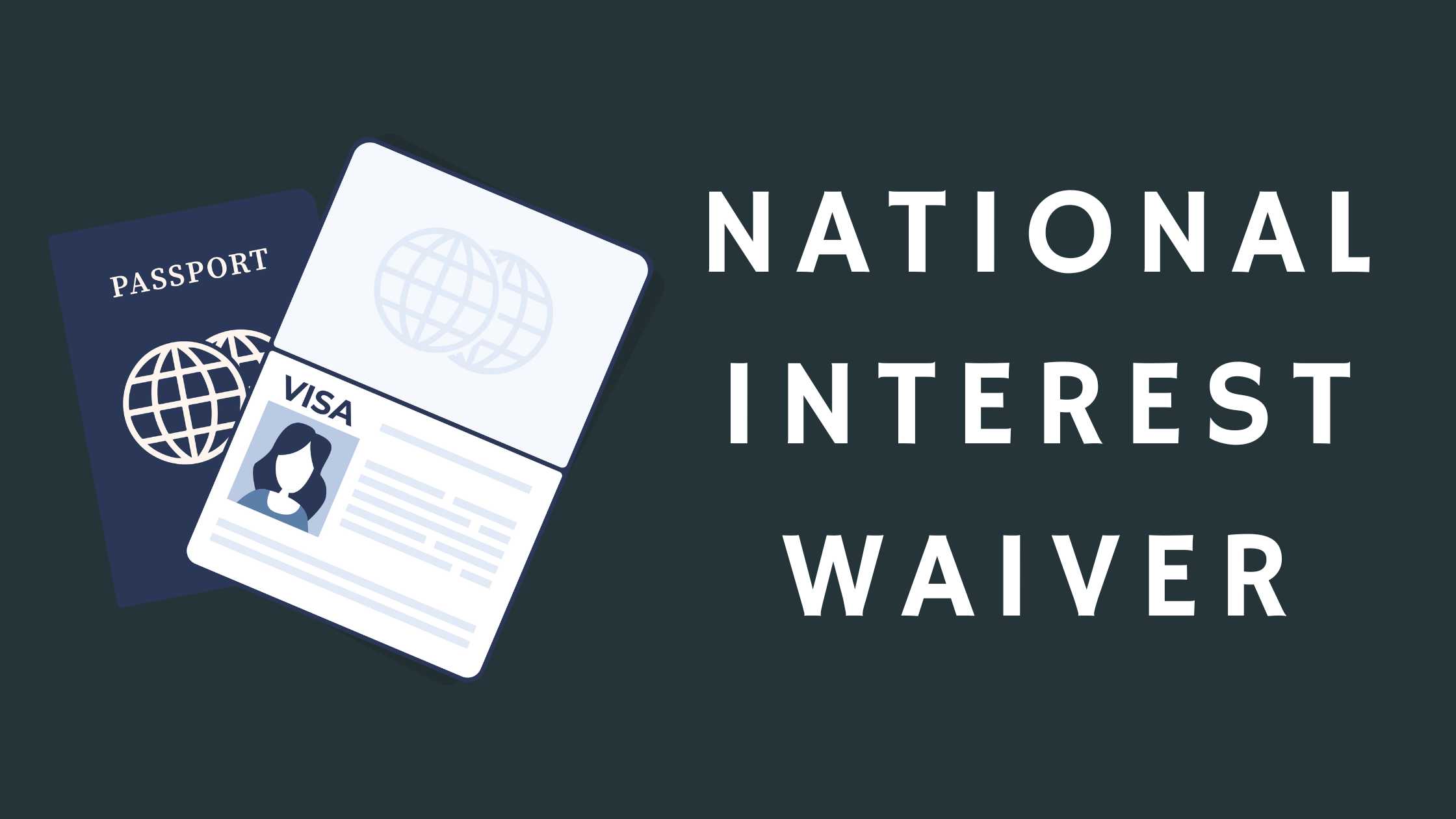
National Interest Waiver
The National Interest Waiver (NIW) provides an avenue to obtaining permanent residency for foreign nationals who possess exceptional skills and can demonstrate that their work benefits the United States as a whole. Although this process allows professionals to secure permanent residency without employer sponsorship, it does present unique challenges; therefore, in this article we will look at common legal and procedural barriers encountered while applying for the NIW and provide insights on how best to address them.
1. Demonstrating “National Interest”: One of the key challenges associated with National Interest Waivers cases is demonstrating how their work significantly benefits the United States on a national scale. Defining and articulating this concept can be complex; to overcome it, applicants should strive to amass evidence that highlights its broader impact. Such evidence might include citations in credible publications, endorsements from experts in their field or tangible proof that their contributions have altered public policy decisions, economic growth or national security matters.
2. Demonstrating Substantial Merit and National Importance”: Establishing exceptional abilities and the importance of their work can be challenging for applicants seeking admissions. Providing documentation of achievements, awards and recognitions as well as letters from established professionals in their field is important in providing a compelling narrative on an applicant’s contributions to society and how much impact their contribution had in contributing towards national goals.
3. Crafting an Appealing Petition: Crafting an appealing NIW petition involves not only gathering strong evidence but also framing it in such a way as to tell an enticing tale. Accomplishing this requires having a deep knowledge of NIW criteria as well as being able to present evidence which showcases your applicant’s individual contributions – so seeking assistance from experienced immigration lawyers specializing in these cases may dramatically increase chances of success.
4. Addressing Requests for Additional Evidence (RFEs): USCIS may issue Requests for Additional Evidence (RFEs), seeking more evidence in support of the NIW petition. Responding to RFEs requires meticulous care and an effective strategy, so working closely with an attorney during this phase may ensure your response effectively addresses USCIS concerns.
5. Navigating Complicated Immigration Regulations: Navigating immigration laws and regulations can be complex and time consuming, making compliance a daunting challenge. Partnering with immigration attorneys who specialize in National Interest Waivers (NIWs) cases may help applicants navigate this unique legal environment more easily while remaining compliant with current rules. In such instances, having expert representation can guide applicants through all changes that could affect their case as they occur.
6. Timing and Processing Delays: Immigration applications, including Nationality Immigration Waivers (NIW applications), can take time due to processing times and backlogs, making navigating this challenge a delicate one. Starting early and staying informed on any potential delays are the keys to meeting those expectations successfully.
While obtaining permanent residency through NIW may come with its share of legal and procedural hurdles, adequate preparation coupled with expert guidance from a qualified immigration lawyer can significantly increase one’s chances for success. A skilled ICE Immigration Houston TX attorney will know how best to present evidence that highlights an applicant’s achievements.
Conclusion: Pursuing a National Interest Waiver offers an alternative route to green card eligibility, but it comes with its own set of unique challenges. From proving the national significance of your work and crafting a compelling petition through to handling legal complexities and gathering strong evidence for consideration; each step demands your full consideration and careful execution. With support from experienced immigration attorneys and knowledge of current regulations at hand, applicants can overcome these hurdles and increase the odds of an successful NIW case – each case differs and having a customized strategy in place is key when navigating its complex landscape!
This post was written by Okoye Morgan Jr., a lawyer with extensive knowledge as a trust lawyer Tampa. Okoye is one of the founding partners of The Black Law Company, specializing in personal injury law, trust and estate law, civil litigation law, and criminal defense.